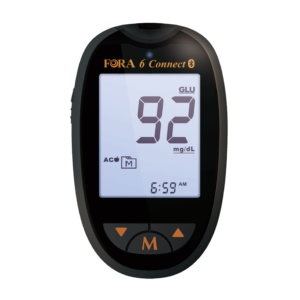Role of Ketogenic Diet in Traumatic Brain Injury
The ketogenic diet contains high fat and low carb, it directly shifts the source of energy for your body to ketones. One pursuit has found that the ketogenic diet gives neuroprotective advantages which are ended up being useful for recuperation after a traumatic brain injury.
In this article, we will talk about the advantages of the ketogenic diet for traumatic brain injury.
Advantages of the ketogenic diet for recuperation from traumatic brain injury
Source of energy
After a traumatic brain injury, the brain won’t have the ability to get its energy through glucose as it did before getting the injury. Glucose is the principal source of energy for the brain. A ketogenic diet will assist the brain with getting its energy which is ended up being useful for the main recuperation from traumatic brain injury.
Ketosis
The main objective of the ketogenic diet is to decrease the amount of fat by adjusting the source of energy. For this, the body enters a condition which is called ketosis. During ketosis, the liver fat is changed over into ketones which become the source of energy for the body.
Brain recuperation
Ketones decrease oxidative pressure and increase scavenge-free radicals and antioxidants. Through these cycles, the brain recuperates fastly.
Decreasing Seizures
The ketogenic diet additionally helps to lessen seizures. Ketones balance out brain action which helps control the unusual electrical activity in the brain.
Side effects
Most of the time the ketogenic diet is beneficial but it has some side effects of which you must be well aware before trying this diet.
The ketogenic diet might cause
– Fatigue
– Stomach Pain
– Irritability
– Vomiting
– Dizziness
– Difficulty in Sleeping
– Stress
Following a ketogenic diet will build your degree of stress for you. Since you just need to eat a particular sort of quality food which is great for your well-being yet some of the time you could hope everything works out for to eat some hot food as. You just need to control yourself for your well-being. Which is troublesome yet not feasible.
Ketoacidosis
Those individuals who experience the ill effects of diabetes are advised to never attempt this eating regimen. Since it tends to be deadly for their well-being and they might get ketoacidosis. It is a condition described by elevated levels of acidic blood in the body.
A few side effects of ketoacidosis are:
– Queasiness
– Dry mouth
– Breathing troubles
– Sweet, Sugary Breath
– Frequent urination
If your body shows any of these side effects promptly talk with your doctor.
Conclusion
The ketogenic diet is helpful for recuperation from traumatic brain injury. However, more examination should be performed to solidify its advantages. The ketogenic diet is a superior source of brain energy when the utilization of glucose is unsuitable. It additionally diminishes seizures, which is useful in battling against traumatic brain injury.
As we all know that changing food habits are not easy to adopt and our body performs differently when we change our meal. Which may be beneficial or not for our body’s health.
That is why it is suggested that never try anything on your body without consulting with your doctor.
Hope after reading this article you become fully aware of the advantages and disadvantages of the ketogenic diet for traumatic brain injury recovery.

ForaCare offers the FORA 6 – the only glucometer that measures blood glucose, total cholesterol, and multiple other parameters ideal for diabetes management.
The FORA 6 offers clinically-validated accuracy, the capacity to measure multiple parameters that contribute to comprehensive diabetes treatment, and Bluetooth connectivity to iFORA app.